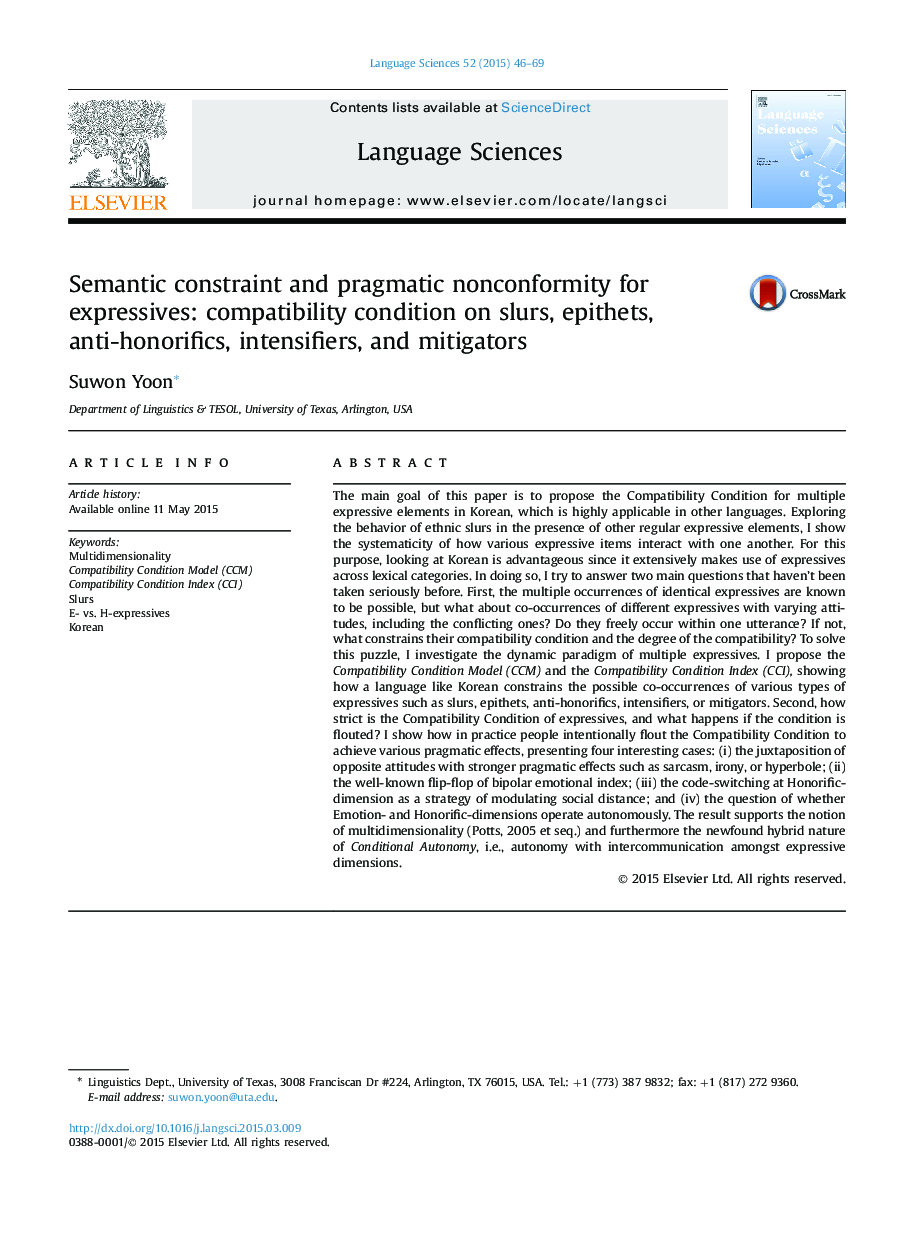| کد مقاله | کد نشریه | سال انتشار | مقاله انگلیسی | نسخه تمام متن |
|---|---|---|---|---|
| 1103013 | 1488150 | 2015 | 24 صفحه PDF | دانلود رایگان |

• I propose the lexical semantics for slurs.
• I propose the Compatibility Condition Model (CCM) for multiple expressive elements.
• I propose the Compatibility Condition Index (CCI) for calculating the numerical value of compatibility between expressives.
• The result supports the notion of multidimensionality (Potts, 2005).
• The result suggests the newfound hybrid nature of autonomy with intercommunication amongst expressive dimensions.
The main goal of this paper is to propose the Compatibility Condition for multiple expressive elements in Korean, which is highly applicable in other languages. Exploring the behavior of ethnic slurs in the presence of other regular expressive elements, I show the systematicity of how various expressive items interact with one another. For this purpose, looking at Korean is advantageous since it extensively makes use of expressives across lexical categories. In doing so, I try to answer two main questions that haven't been taken seriously before. First, the multiple occurrences of identical expressives are known to be possible, but what about co-occurrences of different expressives with varying attitudes, including the conflicting ones? Do they freely occur within one utterance? If not, what constrains their compatibility condition and the degree of the compatibility? To solve this puzzle, I investigate the dynamic paradigm of multiple expressives. I propose the Compatibility Condition Model (CCM) and the Compatibility Condition Index (CCI), showing how a language like Korean constrains the possible co-occurrences of various types of expressives such as slurs, epithets, anti-honorifics, intensifiers, or mitigators. Second, how strict is the Compatibility Condition of expressives, and what happens if the condition is flouted? I show how in practice people intentionally flout the Compatibility Condition to achieve various pragmatic effects, presenting four interesting cases: (i) the juxtaposition of opposite attitudes with stronger pragmatic effects such as sarcasm, irony, or hyperbole; (ii) the well-known flip-flop of bipolar emotional index; (iii) the code-switching at Honorific-dimension as a strategy of modulating social distance; and (iv) the question of whether Emotion- and Honorific-dimensions operate autonomously. The result supports the notion of multidimensionality (Potts, 2005 et seq.) and furthermore the newfound hybrid nature of Conditional Autonomy, i.e., autonomy with intercommunication amongst expressive dimensions.
Journal: Language Sciences - Volume 52, November 2015, Pages 46–69